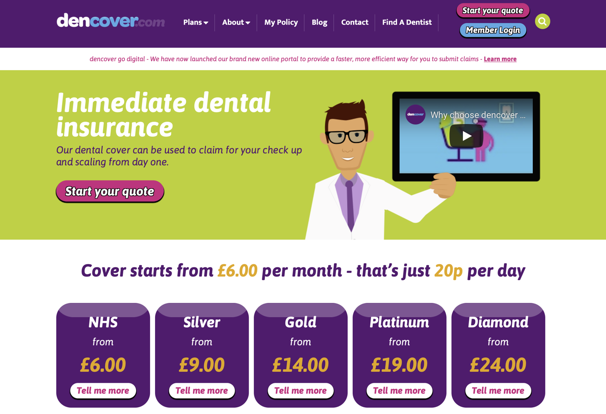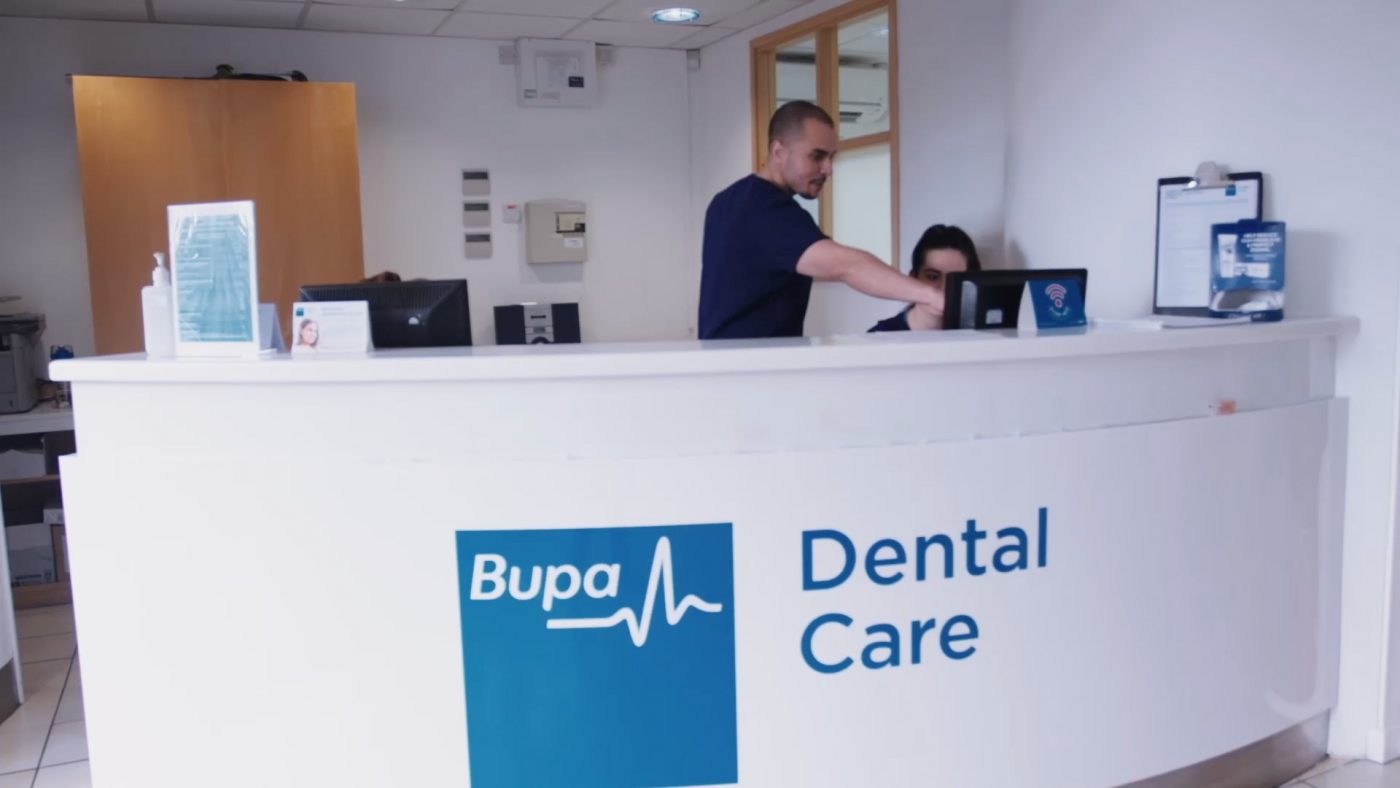It makes sense to use the NHS to receive free or heavily subsidized dental care. However, dental insurance could be a good option if you need a lot of restorations done on your teeth or if you are unable to see an NHS dentist. Learn about the most prevalent kinds of dental insurance, how it operates, when it can be appropriate, and how much it costs.
What is dental insurance?
When reduced to its most basic form, dental insurance is just a policy that pays for your dental care. This can be done privately or through the NHS in the UK. After paying for the dental care, you submit a claim to your insurers to get reimbursement.
Dental Insurance Advantages
- Practical during catastrophes or emergencies—the majority of insurance companies often provide coverage for these events in their policies.
- Most certainly, you would save a significant amount of money by doing this.
- Payment flexibility: They determine what is most convenient for you; therefore, payments can be made on a monthly or annual basis.
- Depending on the kind of coverage and whether the insurance is for a single person or a group, such as a family, prices can be negotiated.
- Dental insurers assist you with the expenses.
- Private therapies are partially covered by your insurance provider, but NHS treatments are often reimbursed in full or almost in full.
- Dental insurance expands the range of available procedures.
- Can be quite costly if it is not necessary for you. For instance, if your teeth are in excellent condition and have had proper care, you could be paying for insurance that you would not need, which would increase your costs!
- The majority of policies specify that you cannot file a claim within the first three to six months.
- Certain procedures, including cosmetics, are not covered; if a particular treatment you desire is not, you are responsible for covering the cost.
- There is usually a cap that changes every year; you may only claim a particular amount for the year.
- All things considered, purchasing dental insurance is a smart idea if you want to be on the safe side or if you need the coverage without having to pay the whole cost of the procedures.
- The majority of policies provide coverage for routine dental care, accidents, emergencies, treatment for oral cancer, and hospital cash benefits.
What does dental insurance cover?
Through the NHS, dental care is reasonably priced or, in certain situations, completely free. It provides care for all of your dental requirements.
However, you might choose to cover the cost of your dental care yourself. There are two approaches to this:
- Dental insurance policies allow you to reimburse your dentist for the services you get by paying for them up front and then submitting a claim to the insurer.
- Dental payment plans, sometimes known as “capitation” plans, allow you to pay a regular monthly sum to stretch the expense of treatment over a certain length of time.
What good is dental insurance if we benefit from the NHS?”
A frequent misperception is that you still have to make payments for NHS dental care unless you are under 18, enrolled full-time in school, or pregnant. For instance, a basic dental checkup is within NHS Band 1 and costs £22.70. Furthermore, the primary purpose of dental insurance is to reimburse either NHS care or a portion of the cost of private treatment.
When would I require dental insurance?
You probably don’t need dental insurance if your teeth are in good health and you just go to the dentist once a year for a checkup. You might still want to, though, if only for the peace of mind that comes with having access to emergency treatment.
However, if you require frequent dental care and your oral health isn’t the best, insurance can be a more affordable option. Similarly, it makes economic sense to have dental coverage if you are unable to locate a dentist on the NHS or if you prefer to see a private practitioner.
Recognize that although NHS care is capped and usually far less expensive than private, you will often still be responsible for paying for it.
The working of dental insurance
In most cases, dental insurance policies require you to pay your dentist for any services rendered, then submit a claim to the insurer to get your money back.
Dental insurance policies cover procedures like fillings, root canals, and crowns at NHS practices, private clinics, or occasionally both. They also cover maintenance, including examinations, scale and polish, and X-rays. Teeth whitening and other cosmetic dental procedures are frequently not covered.
Best Dental Insurance Of 2023
1. Dencover

To meet your needs, Dencover provides five distinct dental insurance options. The monthly cost of coverage for the Dencover NHS plans is £4.99. Discovering silver, gold, platinum, and diamonds are further possibilities. If you don’t have a dental plan, modern dental care can be costly. Dencover provides you with a range of choices for paying for your dental care.
2. Bupa dental

Our goal is as straightforward as it gets: to provide the greatest patient care possible within the sector. It’s a tall order, but we pull it off by making our patients and you the center of all we do.
Patients, clinicians, and those looking to forge a long-lasting career should all choose Bupa Dental Care.
3. Simplyhealth

The industry-leading products from Simplyhealth enable companies to show a sincere dedication to preserving the health, happiness, and productivity of their workforce. We support the performance of companies and their talent. Even in the technological era, people are still what give businesses an advantage.
Simplyhealth’s health cash plans make it simple for people to maintain their health and wellness so they can take care of business, allowing businesses to take care of their staff.
4. WPA

5. Boots

Boots UK is a member of Walgreens Boots Alliance, Inc.’s Retail Pharmacy International Division. Boots is a well-known store and supplier of pharmaceutical, health, and cosmetic products and services in the United Kingdom.
6. AXA

The insurance provider AXA SA (AXA) provides both life and other types of insurance plans. It provides health and personal protection goods, private and public savings retirement plans, individual life insurance, and group life insurance, among other life insurance and savings products.
In addition to retail banking goods and services, the firm provides insurance for property and casualty products, including residential, auto, and general liability insurance. Through a network of agents, paid sales teams, brokers, independent financial advisers, and bank networks, AXA provides services to both individual and business clients. Additionally, it uses traditional sales methods, including the phone, mail, or the Internet, to distribute its goods. Paris, France, serves as the home base for AXA.
The Essential Information Regarding Dental Insurance
- Regular check-ups and the total cost of any dental work are covered by dental insurance policies.
- Accidents and crises involving the dental profession are included.
- The work can frequently be completed at a private clinic or an NHS office.
- You have a better chance of receiving full reimbursement for the price of your care if you see an NHS dentist.
- You will only receive reimbursement for a portion of your treatment expenses if you are unable to see an NHS dentist.
- After paying the dentist, you get your money back. Typically, claims cannot be made until one to three months after the insurance is purchased.
- The yearly maximum that you can submit a claim for is often set for certain therapies.
- Treatment found at your initial checkup may not be covered by your insurer if you haven’t seen a dentist in a year.
- Teeth whitening and other cosmetic dental procedures are typically not covered by insurance.
- While some policies begin at age six, the majority of policies contain an age range that begins at 18.
- Certain policies provide a discount for no claims. For this reason, if you file a claim for something other than a routine check-up, the price of your premium will go up.
What is the Cost of Dental Insurance?
The annual premium for dental insurance varies across different insurers and policies, ranging from £70 to £303.
Numerous provide varying degrees of coverage, ranging from standard care to comprehensive treatment programs. Thus, you are free to decide on the quantity of insurance and the price you choose to spend.
For instance, less expensive insurance could only cover 50% of your medical expenses or have a smaller annual benefit cap for each disease. For instance, a root canal procedure might cost up to £500 in a year.
You will still be responsible for certain treatment costs even if you have insurance, and the amount of money you may get reimbursed for each treatment plan is limited. For instance, you could receive 50–70% of the total cost that your dentist charges for corrective dental work. Nonetheless, certain policies reimburse the full cost of NHS care.
Join the group on Facebook.
For advice on how to save money and encouragement from other savers, join our exclusive Facebook group, Budgeting and Saving.
The Essential Information ON Dental Payment Plans and Schemes
These plans, frequently referred to as “capitation plans,” divide the expense of your dental care over the course of a year.
There are many degrees of therapy enrollment available:
- Level one treatment includes standard procedures including examinations, fillings, scale and polish, and X-rays.
- Restorative care, like tooth crowns and root canal fillings, is also included at level two.
- There are plans with international coverage for dental emergencies and injuries, as well as adaptable options tailored specifically for kids.
- The more expensive dental insurance policies have the same average monthly cost. You would be better off at the NHS if your teeth were in good condition.
- A dental plan binds you to a certain dentist. There won’t be any reimbursement for a referral to an orthodontist or other expert.
- You might have to go through the procedure all over again if you move to a different location or change dentists. This implies that your payment may need to increase.
What is the Price of a Dental Payment Plan?
- The price is determined by your oral health and the plan you select.
- Your dentist determines the monthly payment after evaluating your dental requirements.
- Your dentist will examine you if you select the whole package. They’ll place you in a band with a fixed charge based on how much time, attention, and therapy you’ll require over the course of the year.
- If your dental health improves or deteriorates, you may be able to shift between fee bands. There may also be a membership charge that you must pay.
- When paying the dentist directly, keep in mind that costs may differ significantly across offices.
How to Get Dental Insurance?
- As a part of their staff’s benefit packages, businesses frequently include dental policies, such as those provided by private health insurance.
- Certain employers provide different levels of insurance, arrange for the policy, and cover every payment of premiums as part of their package.
- Some provide savings to staff members who see a dentist that are covered by the insurance they have.
- In the event that your company does not provide private health insurance, you can get it from:
- a financial advisor, insurer broker, bank, building society retailer, or supermarket.
- Additionally, you may compare policies by utilizing comparison websites, where they may be referred to as insurance for health.
Final Words
In conclusion, the necessity of dental insurance and the kind of coverage you want will determine how much weight it receives. Whether I wanted NHS or private dental care, I would personally pick Bupa dental insurance, as it is really simple and I know exactly what I would be getting into. One key consideration when choosing which coverage to purchase is the competitive pricing they provide.
On the other hand, because the first policy Boots offers fails to include emergency dental care, they are the insurance company I am most likely not going to purchase from. Given that this is one of the primary reasons I am thinking about getting dental insurance, I expect every plan to cover it. Though they do include this in their other, more premium options, this makes me less inclined to select this supplier.
All in all, these are just my frank opinions based on what I’d personally pick. All of the insurance businesses on this list have great success rates, so it’s crucial that you choose the one that best suits your needs.










Add Comment